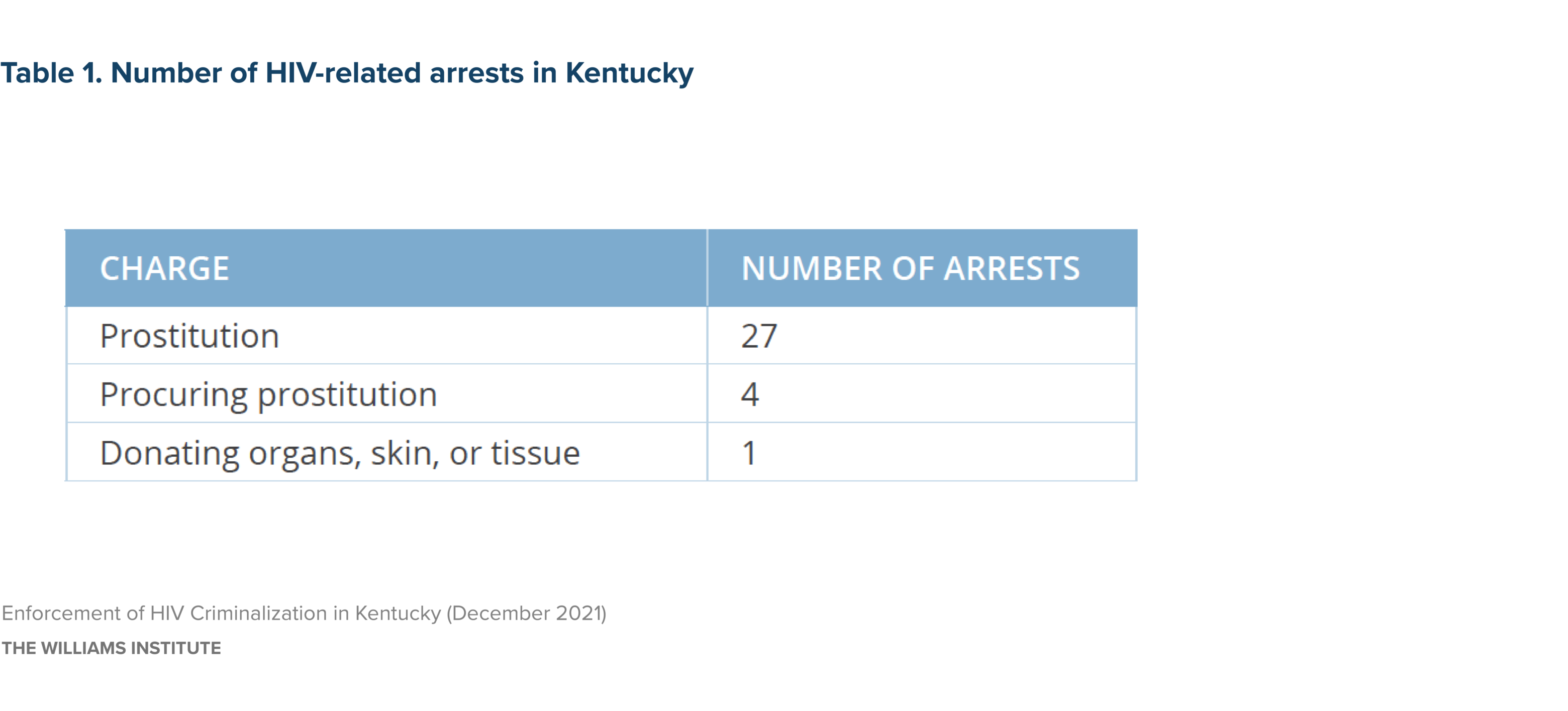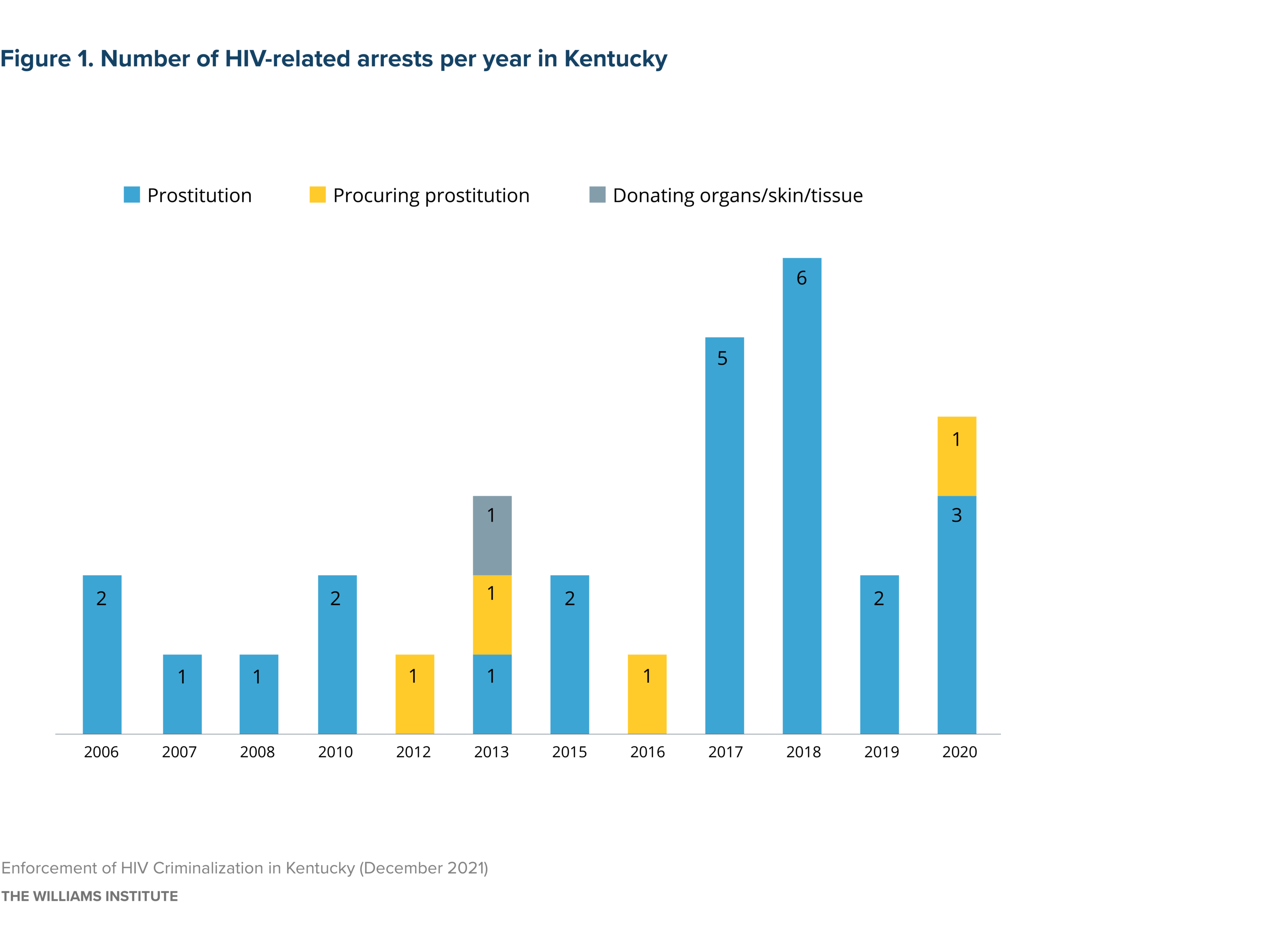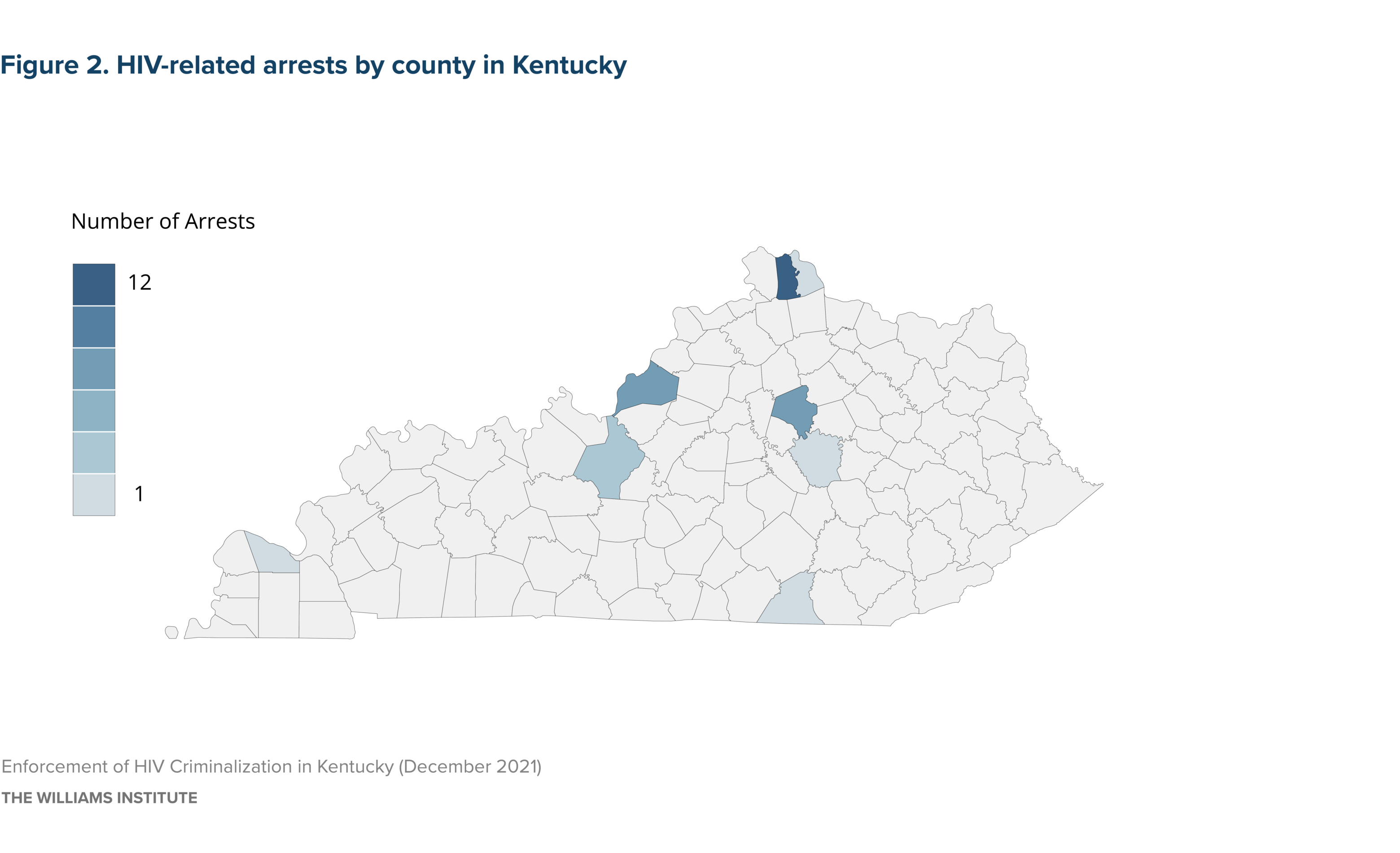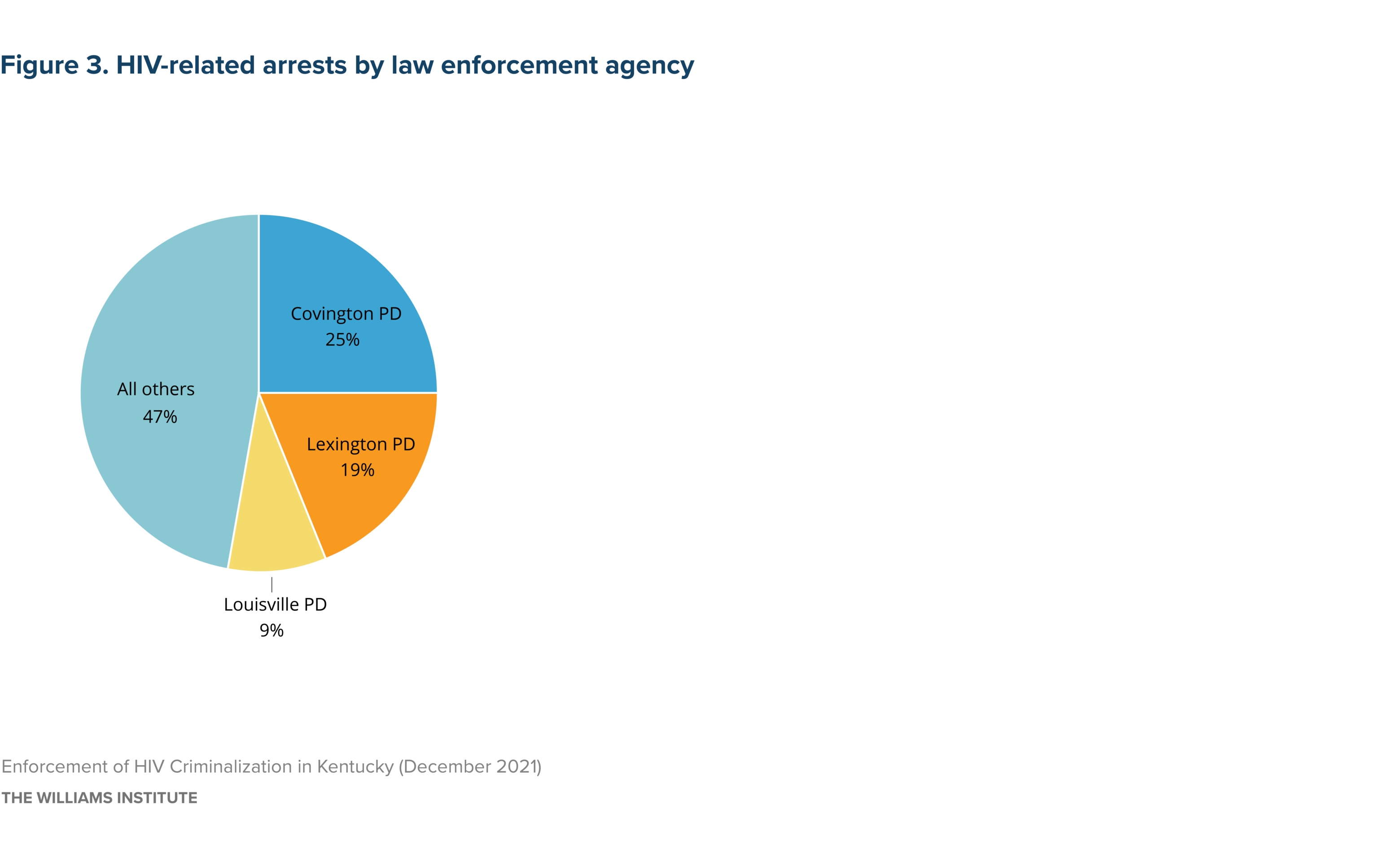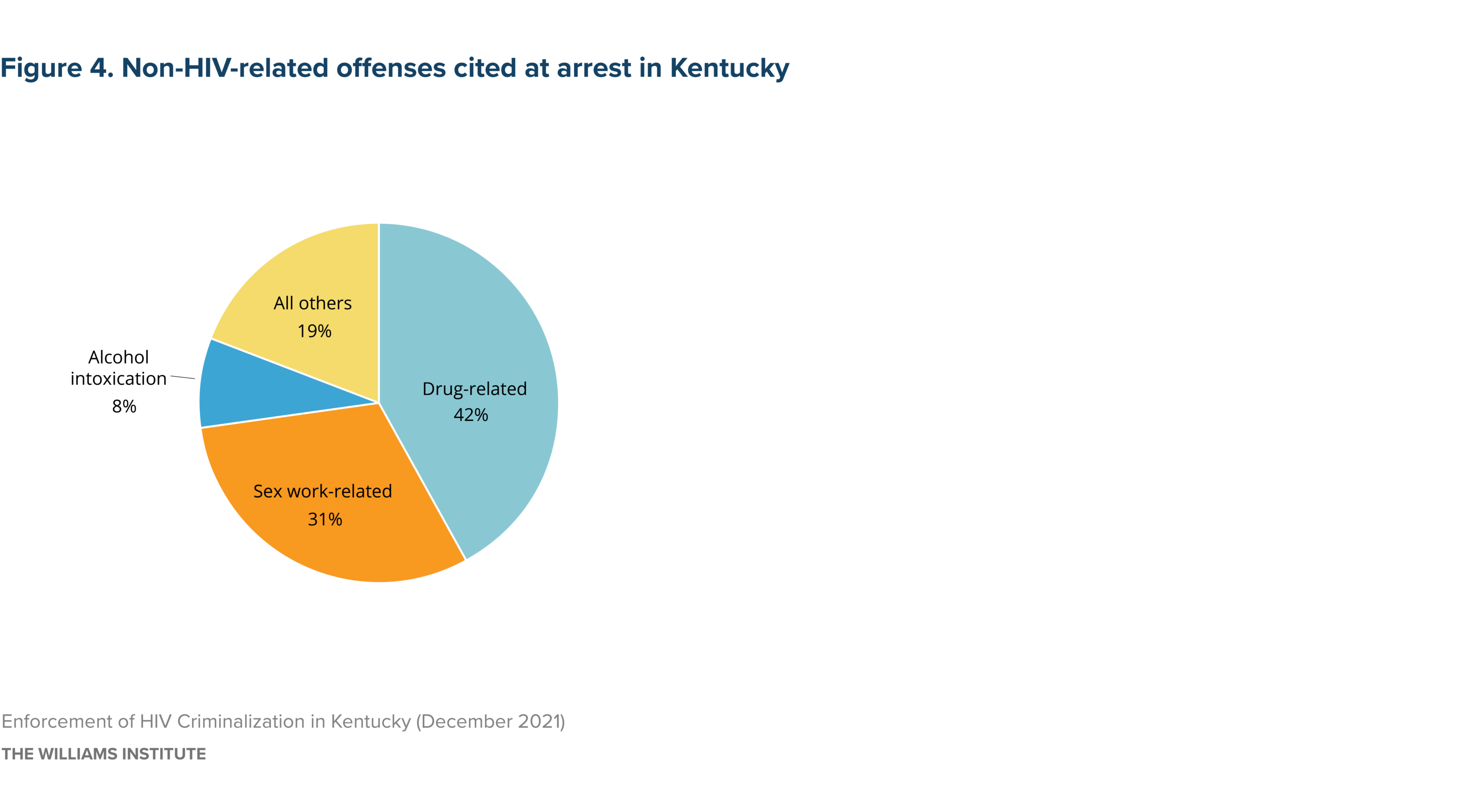Overview
The Williams Institute analyzed data from the state of Kentucky about individuals who came into contact with Kentucky’s criminal system through allegations of HIV-related offenses. The analysis shows that
- Crimes related to sex work accounted for the vast majority (97%) of all of Kentucky’s HIV-related arrests.
- Women in general, and white women in particular, are heavily overrepresented in Kentucky’s HIV-related arrests, accounting for nearly two-thirds (62%) of the total.
- Enforcement is geographically concentrated: on a per-capita basis, Kenton County in Northern Kentucky had about eight times more HIV-related arrests than Jefferson County, the state’s most populous county. Northern Kentucky is part of the Cincinnati metropolitan area and has historically been a site for Cincinnati’s sex work industry.
Background
HIV criminalization is a term used to describe statutes that either criminalize otherwise legal conduct or that increase the penalties for illegal conduct based upon a person’s HIV-positive status. HIV is criminalized in Kentucky through both HIV-specific laws and the state’s general criminal laws. Ky. Rev. Stat. §§ 529.090(3) & (4) creates a Class A misdemeanor for a person who engages in prostitution if that person has a positive non-STD test, and a Class D felony for a person living with HIV who engages in prostitution “likely to transmit the human immunodeficiency virus and who, prior to the commission of the crime, had tested positive for human immunodeficiency virus and knew or had been informed that he had tested positive for human immunodeficiency virus and that he could possibly communicate the disease to another person through sexual activity.”
Ky. Rev. Stat. § 311.990(31)(b) creates a Class D felony for a person living with HIV who donates organs, skin, or tissue and who both knows their positive status and has been informed that they may transmit HIV by donating.
Kentucky also criminalizes people who expose law enforcement officers to bodily fluids. Ky. Rev. Stat. § 508.025(2) makes it a Class B misdemeanor to cause a police officer engaging in their official duties to come into contact with a person’s bodily fluids. If the person knows that they have a “serious communicable disease and competent medical or epidemiological evidence demonstrates that the specific type of contact caused by the actor is likely to cause transmission of the disease or condition” then the offense is upgraded to a Class A misdemeanor.
Kentucky has also prosecuted people living with HIV under the state’s wanton endangerment law. Ky. Rev. Stat. § 508.060 makes it a Class D felony for a person who “under circumstances manifesting extreme indifference to the value of human life…wantonly engages in conduct that creates a substantial danger of death or serious injury to another person.” Kentucky’s wanton endangerment law was first used to prosecute a person living with HIV for not disclosing their status to a sexual partner in 1998. Over the years there have been many cases of people living with HIV being prosecuted under this general criminal statute.
Data Source
In December 2021, the Williams Institute obtained de-identified criminal history data of individuals who came into contact with Kentucky’s criminal legal system through the state’s HIV-related criminal statutes. The data were supplied by the Uniform Crime Reporting Section of the Kentucky State Police, and include all arrests reported under Kentucky Revised Statute §§ 529.090(3) & (4) (Prostitution and procuring prostitution) and Ky. Rev. Stat. § 311.990(31)(b) (organ, skin, and tissue donation). These are Kentucky’s HIV-specific criminal laws. We excluded from the analysis the wanton endangerment offense and the bodily fluid exposure offense because they are not HIV-specific, and because we are unable to identify which arrests might be HIV-related in the data provided by the Kentucky State Police.
Number and Frequency of Arrests
There have been at least 32 arrests for HIV-specific offenses in Kentucky since the year 2006. All but one arrest was for the prostitution-related offense (including four for “procuring” sex work). There was one arrest for organ, skin, or tissue donation.
